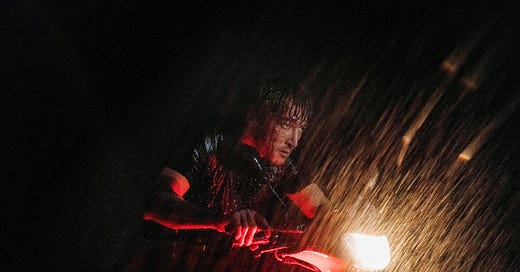The Wild Goose Lake (2019): Smuggling social commentary past the censors
Diao Yinan's neo noir is a smokescreen for a bleak depiction of Chinese life we rarely see in this climate of censorship
In 2014, China’s leader Xi Jingping proclaimed that the purpose of art should not be to spotlight social ills or criticise the system but should instead be “imbued with a patriotic sentiment”. Essentially, he wanted Chinese cinema to be a tool for propaganda. Xi Jingping set about achieving this several years later by transferring oversight of the country’s film industry to the Chinese Communist Party’s publicity department. Since then, a number of films have been edited or banned outright by the subsequently formed China Film Administration, and whilst justification is rarely given for censorship they tend to be movies in which heroes rebel against the system: Mad Max: Fury Road, Joker and the re-release of Fight Club all fell foul of the CFA. Mad Max and Joker were banned entirely, and Fight Club’s ending was replaced by a title card explaining Project Mayhem failed and Tyler Durden was committed to a psychiatric institution.
Very few Chinese films have been censored by the CFA so far, but the suppression of these Hollywood movies sends a clear warning shot to homegrown filmmakers: be a loyal servant of the Party or challenge it and risk ostracisation. Diao Yinan has found a third option with The Wild Goose Lake though by successfully smuggling a sociopolitical commentary inside a genre film to avoid the Chinese Communist Party’s wrath. The film, which premiered to acclaim at Cannes, depicts a side of China international audiences rarely see in the current climate of censorship: an impoverished modern Wuhan where residents live in poverty. Among its citizens is Zhou Zenong (Hu Ge) who steals motorbikes for a living until an argument over territory with a rival gang results in the accidental shooting of a police officer. There is also Liu Aiai (Gwei Lun-Mei) who makes ends meet through sex work, offering her services as a “bathing beauty” at the titular Wild Goose Lake, and who an on-the-run Zhou requests help from in order to contact his wife so they can escape China.
On the surface, it is a relatively straight-forward thriller in which Zhou Zenong attempts to evade the cops, led by Captain Liu (Liao Fan), who are hellbent on retaliation for the killing of one of their own. It is a damn fine surface too: the sublime lighting, assured camerawork and escalating tension pay tribute to the great film noirs of the 1940s, especially Odd Man Out. In Liu Aiai, there is even a quintessential femme fatale who has an ambiguous agenda of her own. But The Wild Goose Lake also contorts these influences into something bracingly unique by combining them with the deliberate pacing and hushed tones of European arthouse cinema. Think Carol Reed meets Nuri Bilge Ceylan. It is a sublime example of high art pulp fiction.
The film’s genius is that its neo-noir aesthetic is all a smokescreen for Diao Yinan to sneak a criticism of contemporary China past the censors at the China Film Administation. The Wild Goose Lake is really about economic desperation far more than it is about on-the-run criminals and vengeful cops.. The movie makes it clear that each of our main characters are a product of their environment. They operate outside of the law because survival options are limited in a destitute Wuhan. The socioeconomic conditions are so dire, in fact, that when Liu informs Zhou there is a bounty for his arrest, he dismisses his getaway plan and decides his wife should instead turn him in for the reward money. With this, The Wild Goose Lake suggests that China is a place where freedom has a price.
⭐⭐⭐⭐
Directed by Diao Yinan. Written by Diao Yinan. Produced by Li Li. Starring Hu Ge, Gwei Lun-mei and Liao Fan. Green Ray Films and Maisong Entertainment Investment. Distributed by Memento Films. 113 minutes. China/France.




